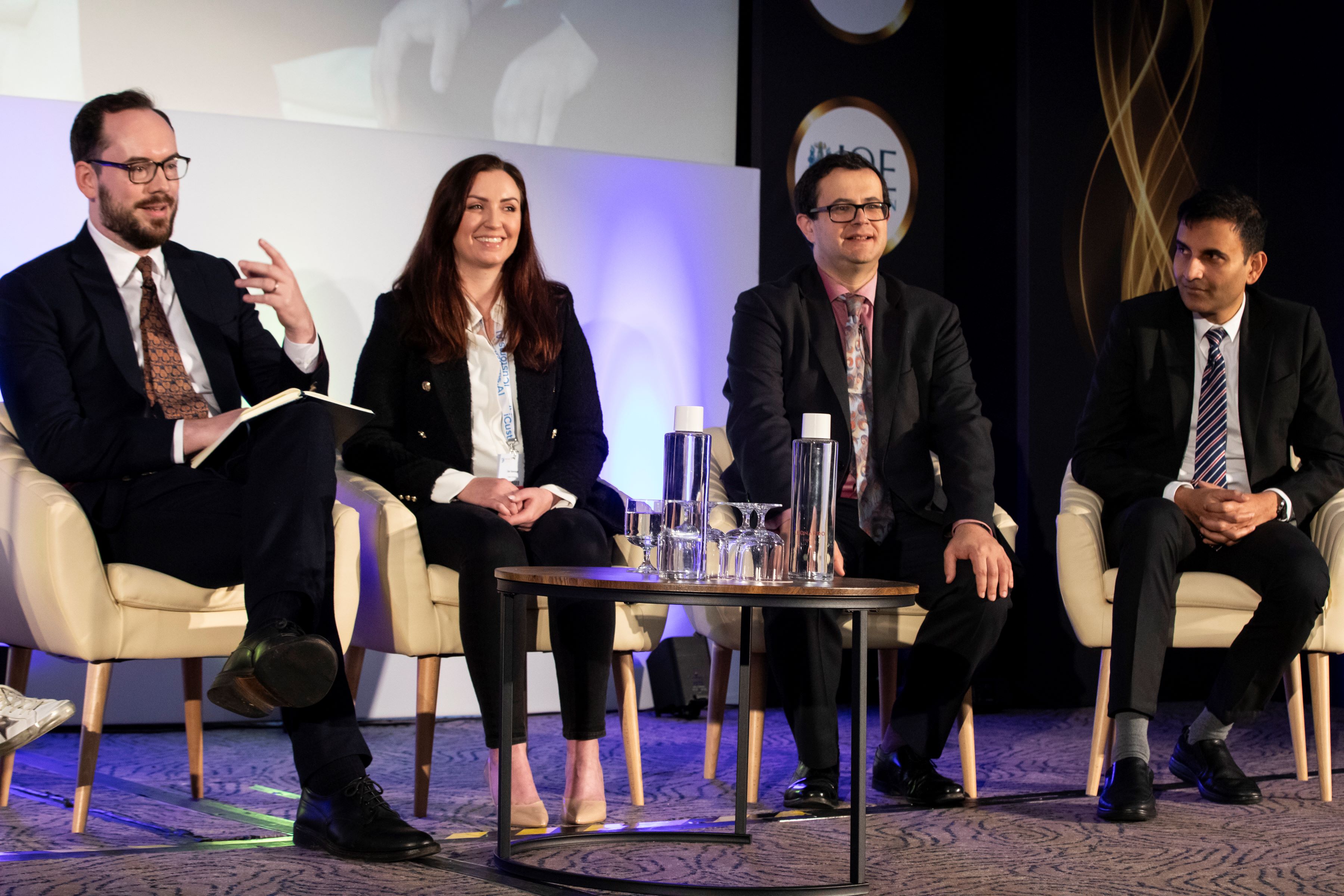
A panel of trade policy experts, speaking at the inaugural Import Export Show, agreed that the UK needs to reimagine itself as a “smaller, more nimble” entity in global trade.
David Henig, director of the UK trade Policy Project at the European Centre for International Political Economy, also said there are “grounds for optimism and on which the UK can build”, noting that businesses have proven to be resilient to various disruptions over the last few years following Brexit and the pandemic.
He was speaking alongside Sam Lowe, partner at Flint Global, Professor Clair Gammage, head of the law school and professor of international commercial law at the Exeter University, and Abhishek Sharma, senior director for transport at Trade Mark Africa, with ITN’s Nina Hossain as the moderator.
Hossain was also the host for the conference in central London, which was being run by the Institute of Export & International Trade (IOE&IT).
‘Moving from free to managed trade’
Lowe said businesses were operating against a backdrop of trade being increasingly “managed” by governments, including the UK, mentioning the rise in sanctions and controls on technology exports.
He noted that even free trade agreements “create quite a lot of work” for businesses, due to the need to prove compliance with origin rules to claim preferential tariffs.
He said that all these barriers have “policy objectives” but that countries needed to consider what were the “best procedures for businesses”. He added that “navigating geopolitics is challenging” for businesses, citing the war in Ukraine and US-China tensions among issues currently impacting trade.
However, Henig said that “trade has always been complex”, adding that “we’ve already had so many nasty surprises” such as Brexit, the pandemic and the war, which businesses have so far withstood.
He said that businesses’ main concern of late has been inflation, adding that the UK has had “too much focus on free trade agreements and not enough on a broader set of policy objectives that build upon the UK’s strengths”, such as services and education.
Values-driven
Professor Gammage praised the work of civil servants in listening to business’ concerns, adding that the UK could follow Africa’s lead in introducing digital solutions to make it easier for SMEs to report non-tariff barriers.
“We need to think creatively about how digital platforms can support this,” she said.
She added that she “would like to see the UK to recommit to values-driven trade”, particularly around sustainable development and workers’ rights.
‘Friend to all’
Sharma raised the UK’s leading role as an investor in Africa as being important because the continent will be host to 50% of the working population in the near future.
However, he said that the UK had “pulled back” a little since Brexit but that this would “hopefully be a short phase”.
He said that the UK, as a standalone trading country, was no longer a significant world power like the EU or US, but said that it could retain importance as a “friend to all” like Switzerland.
Henig made a similar point, saying that with reduced influence as a global rule-setter the UK should instead look to reorient itself as a “smaller, more nimble” country.
Looking ahead
Looking ahead, Lowe said 2024 could be “slightly light” in terms of policy developments due to the election.
He said the potential announcement of a new UK Carbon Border Adjustment Mechanism in the Autumn Statement could be interesting, as well as whether the government might conduct an investigation into electric vehicle production in China.
Henig added that a realignment of UK trade policy with the EU could continue to gather steam. Gammage said she hoped the UK would do this, saying there needed to be more of an emphasis on trad with “our closest neighbours”.



